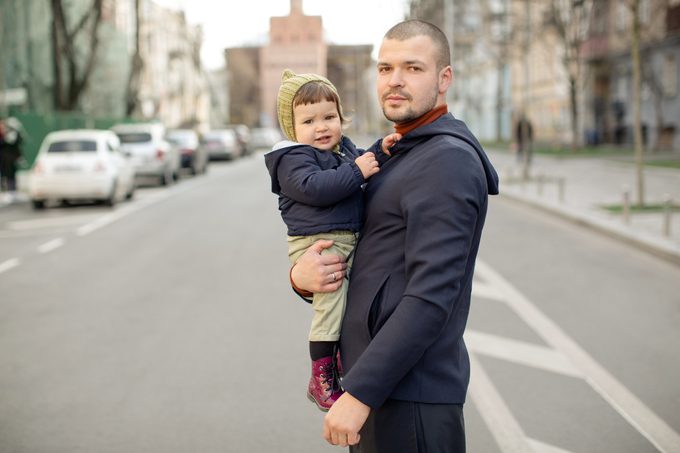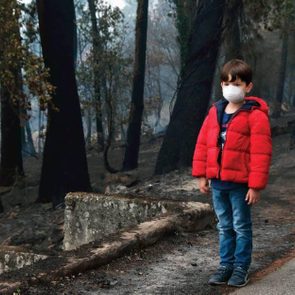A Public Health Nurse Details Medical Issues Many Refugees May Be Facing
Updated: Mar. 23, 2022
"Nothing felt better than to be able to say, as one mother to another, ‘I got you,'" says this Colorado nurse educator.
When the small boy arrived at a Colorado emergency room, the only facts the medical team could deduce was that his name was Kamran…and he was incredibly ill. But how old was he? Where had he come from? How long had he been sick—and what, exactly, was wrong?
No one could answer these questions because it was clear that no one in Kamran’s family spoke English. With some patient attempts at dialogue, the staff determined that he was a recent refugee from Afghanistan—but without the language to describe his symptoms, how long he’d had them, or his family’s medical history, all they could do was wait for an interpreter.
Kamran had no health records, so no one knew his history or whether he’d been vaccinated against basic childhood illnesses. This was at the height of the Covid-19 pandemic, but a test for the virus suggested he was suffering from some other type of infection. Eventually, the clinicians narrowed it down to a type of bacterial pneumonia and prescribed him with a course of antibiotics.
This presented another hurdle: Kamran had no way to access a pharmacy, no address for the pharmacy technician to put on his record, and, ultimately, no money to pay. Also, because his family had no phone, there would be no means for the hospital system to make a followup call to inquire about whether his treatment was working.
This was when the hospital called in Amy Duran, RN, MSN, who works with refugees and other vulnerable populations in Colorado. As a certified public health nurse educator, Duran helped the family get a taxi voucher so they could pick up their child’s medications. She also reached out to colleagues within her network to help the family find housing and get connected with social services, like Supplemental Nutrition Assistance Program (SNAP) benefits and information from the local school district to get Kamran enrolled.
The physical and mental toll on refugees
Thanks to his care, Kamran is now healthy, actually thriving, in his new home, Duran reports. But even after the most basic needs—food, water, safety, shelter—are met, his case highlights the many ways being a refugee can compromise an individual’s health…sometimes resulting in life-or-death circumstances. “Essentially, every system in your body is harmed by the physical and mental stress of being a refugee, and the damage doesn’t just stop when the immediate threat is resolved,” Duran explains.
In addition to many of the obvious injuries we might observe in the news that occur on impact (such as wounds or broken bones that may not have been treated in the moment), being forced to flee home is often to embark on a winding journey through unpredictable and ongoing health problems.
Why fleeing for safety can be so harmful to health

The health effects of being a refugee go far beyond the injuries and traumas that occur in the process of leaving their homes, says Duran. Some of these factors include:
Constant stress
Cortisol, also known as the “stress hormone,” becomes elevated during fight-or-flight situations. It should return to normal levels when the stressor is removed—but for refugees, that may not happen for a very long time. This chronic stress can affect nearly every aspect of an individual’s health, from fertility to risk for heart disease to mental health problems like depression, anxiety, and post-traumatic stress disorder, Duran says.
Malnutrition
Even when food is available in these situations, it’s often not fresh and nutritious (and is sometimes contaminated). Too many refugees have to survive on very limited diets of processed foods. This food insecurity can lead to malnourishment and its many related health consequences, which include lowered immunity, blood sugar issues, and food- and water-born illness, like cholera, Salmonella, lead poisoning, and hookworm, among many others.
In children, malnutrition can result in conditions like rickets and failure to thrive.
Transient housing
Refugees are often housed in temporary camps, moved between shelters, or placed in other types of shared housing with strangers. The lack of privacy and quiet surroundings, plus personal safety concerns, can make it difficult to get adequate sleep, which is vital to health.
Being forced to move around can also make it challenging to take care of personal hygiene needs, like brushing teeth and bathing. These limitations alone increase the risk of infection and other illnesses—perhaps especially during a pandemic.
Loss of community
“You don’t realize how much you rely on your social group for health needs, like where to find a doctor, or who is a good midwife, or which store has the best fruit,” Duran says. When individuals are cut off from their home community, they often lose that vital system of health support that comes from word of mouth and caring neighbors.
Financial loss
Even some individuals who were working professionals or had reliable means of income at home are faced with scenarios where, for one reason or another, they can’t gain access to their money or otherwise have little or no financial resources. Reports suggest inadequate financial means is the top social risk factor correlated with increased disease and a shorter lifespan.
Environmental hazards
It isn’t uncommon for refugees to be exposed to toxic chemicals, unclean water, and polluted air. This can make them sick in the short-term, but can also cause lifelong health problems, such as heightened risk for lung cancer and other cancers, tuberculosis, pneumonia, malaria, and allergies, among others.
How you can help
The degree of need can feel overwhelming—but helping can be a very simple process. “You don’t have to do everything for them,” Duran says. “It’s about helping them figure it out and connecting them with resources that already exist.”
Here’s what you can do today:
- Be a friend—talk to local church leaders, health organizations (especially free medical clinics that are available in some communities), food banks, and others who help individuals in need. Offer donations, and get to know refugees in your area so if they have questions, they can turn to you.
- Connect them with support groups, including schools and English classes.
- Contact your government representative and advocate for laws that increase social infrastructure and provide for individuals in need.
- Donate to trustworthy organizations—read How to Help Ukraine Right Now from our sibling team at Reader’s Digest.
And, educate yourself on the very human complications of war. Duran offers presentations in countries around the world about her work helping vulnerable populations, including refugees and local impoverished people. She says a common question she encounters is from a member of the audience who expresses concern that refugees are just trying to “game the system” or “take advantage.”
“This is false,” Duran says. “The vast majority are people exactly like you and I, but who’ve ended up in terrible circumstances. I can tell you that when I met Kamran’s mother, she was just a mom who wanted her baby to live. And nothing felt better than to be able to say to her, as one mother to another, ‘I got you.’ My job is incredibly difficult…but in moments like that, the chaos is worth it.”
Sign up for The Healthy newsletter for conversations about health issues that are top-of-mind in the world today. Keep reading:
- Exhausted From Living Through Stressful Events? A Resilience Expert’s 6 Tips to Stay Encouraged
- 24 Therapist Tips for Finding Hope in Dark Times
- Feeling Down? Here’s the Compelling Effect of Your Mental Health on Your Heart Health
- Doctors Say Knowing About This Vaccine Could Cut Your Cancer Risk Significantly
Editor’s note: The child’s name was changed in this story to protect privacy.














